TB activist on strict anti-coronavirus measures: “It's annoying! Every year, we have one million, one and a half million dying. Don't you care at all?”
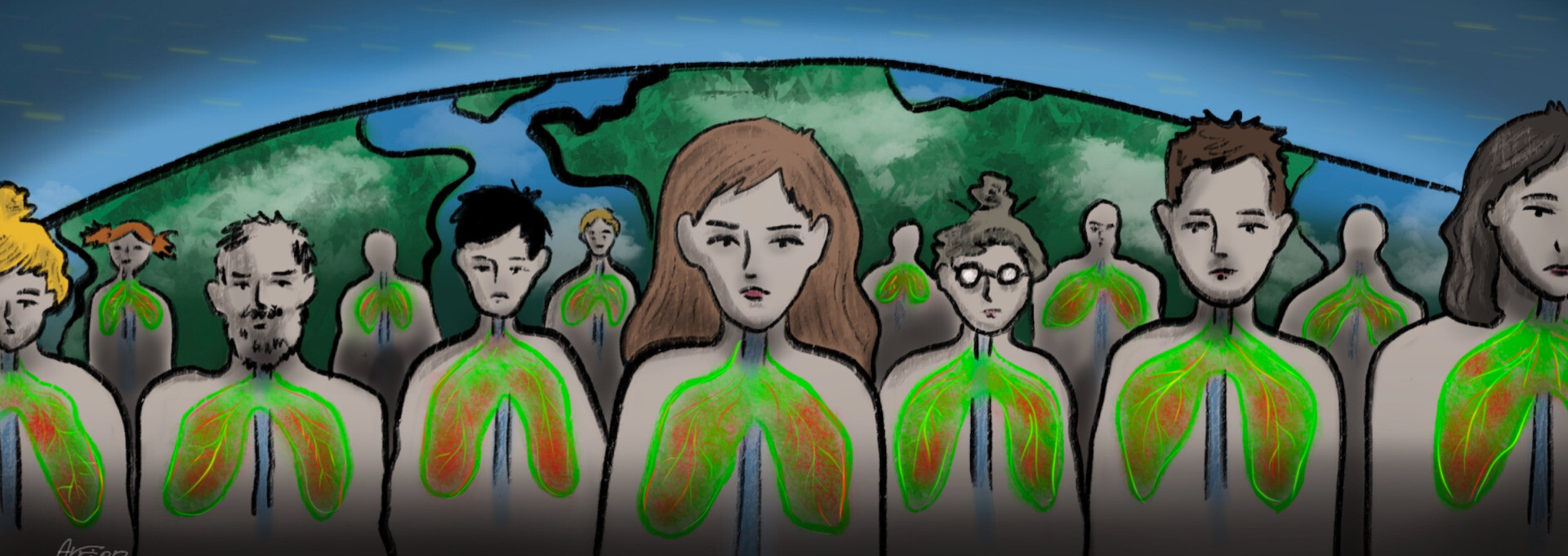
The deadliest infectious disease in the world is still tuberculosis. Former patient and activist Ksenia Shchenina tells RTD the harrowing story of her experience with the illness, and why it's not the germ, but the terrain it finds, that is the real problem.
Just before lockdown, people are riding on a bus. A passenger coughs loudly. Everyone looks at them with panic in their eyes. The passenger shouts out, "Don't worry, I've got TB!" Everyone breathes a sigh of relief.
Ksenia Shchenina, a Russian activist and former tuberculosis patient, tells this story to explain how she feels about the unprecedented measures taken worldwide to stop COVID 19. "It's annoying!" Although she understands why the virus is dangerous, she says, "we're standing there, and we have one million, one and a half million deaths every year. Do you not care at all?" As the deadliest infectious disease in the world is another respiratory infection, which is mostly ignored.
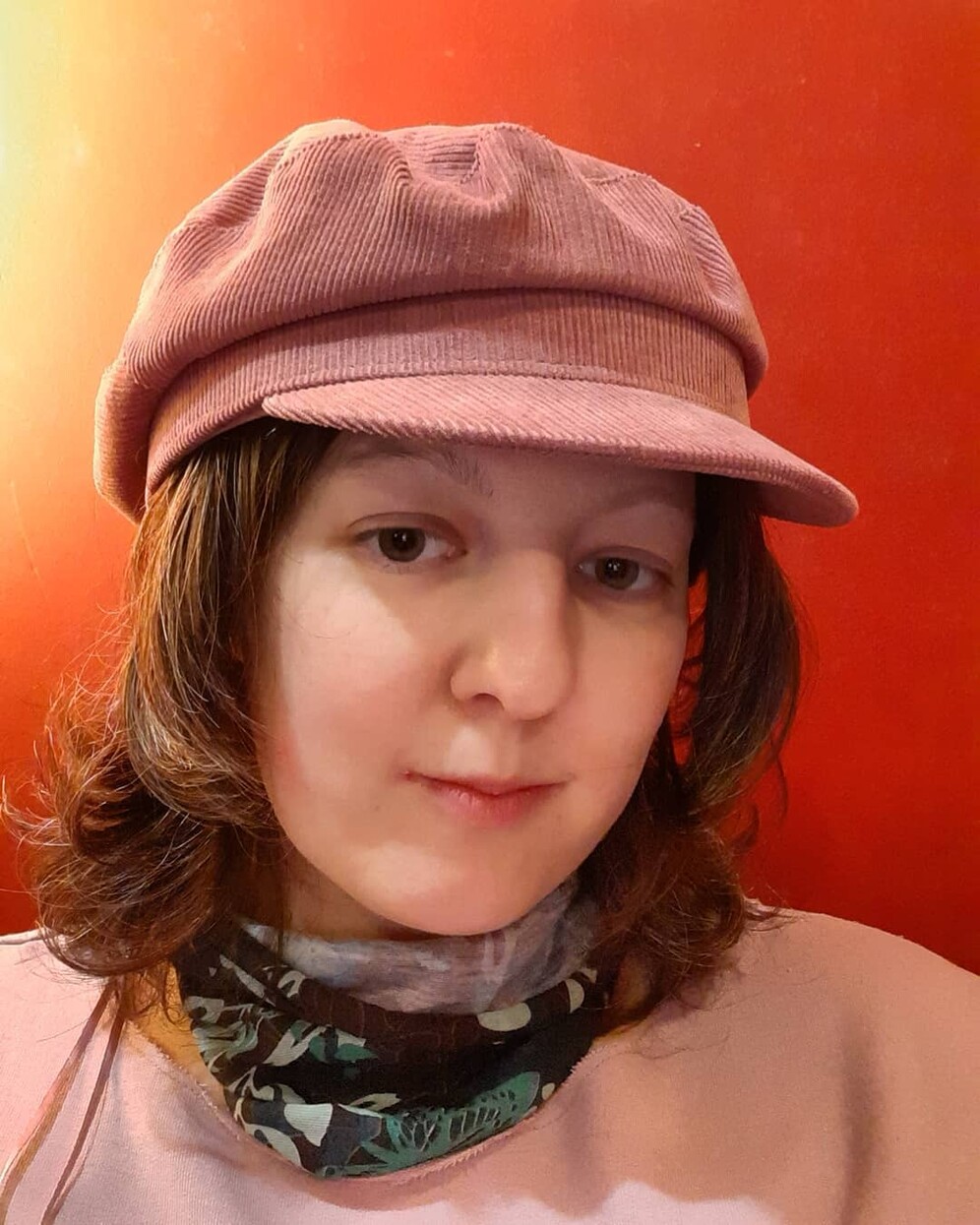
In 2018, tuberculosis killed 1.5 million people worldwide, more than HIV/AIDS. An astonishing 2 billion people are infected, but only 10 million of those develop symptoms. To do damage, the bacteria responsible, mycobacterium tuberculosis, need a favourable terrain.
In some ways, Ksenia Shchenina is not a typical patient. Yet the story of how she fell ill, and of her subsequent activism, show what is generally seen as lung disease is a condition of the heart.
Ksenia Shchenina was born in the Far East of Russia in 1988, during perestroika. She grew up with computers and describes herself as a "veteran of the internet". She started a blog, that functioned as a diary, around 2002. She was seen as a "bluestocking" and a "strange girl" but as a result of her writing, "people started to accept me at school", explains Ksenia.
Helped by the fact her parents' apartment central to the city, her group of "outsider" friends turned into a cool club. "We organised the first flashmob in Khabarovsk", she reminisces. "I'm explaining this because it's necessary", she adds.
At 16, however, her cosy and supportive world turned upside down; she finished school a year early and moved to Moscow to study journalism. The first shock was the crowds. The lifestyle of the megalopolis was utterly different from the Russian Far East, between the Chinese border and the Pacific." It's lotuses, tigers, the ocean, shamans, ginseng", the author enumerates, describing her Asian homeland. In Moscow, her hosts were suspicious of her motives. As a journalism student, she realised she was no longer a big fish in a small pond.
The ultimate romantic finally got to meet her great love, after three years of intense correspondence. But the transition to physical reality didn't meet her expectations. "It was a codependent relationship", she admits. One year later, the pair decided on a month-long break. When they finally met up, the teenager realised her boyfriend had started a similar epistolary relationship with someone else.
"I understood it was over. My world had come to an end". The only thing that stopped her committing suicide was the thought of the pain it would cause her parents. She fell into a deep depression. Spent weeks lying in bed.
Ksenia lost weight, but "it wasn't just because I wasn't eating", she concludes. "That was the time I became ill." Tuberculosis was already at work. Stress, which depletes the immune system, is the crucial factor in unleashing the TB bacteria.
Then, when she was home in Khabarovsk on vacation, Ksenia had a chest X-ray, a routine procedure in Russia intended to pick up on signs of TB. The clinic called her mother to say Ksenia needed to collect her results, but it didn't sound urgent, and so she didn't follow through.
Back in Moscow, Ksenia kept working on her journalism. She was becoming more and more tired and found it hard to keep up with her assignments, which she put down to laziness.
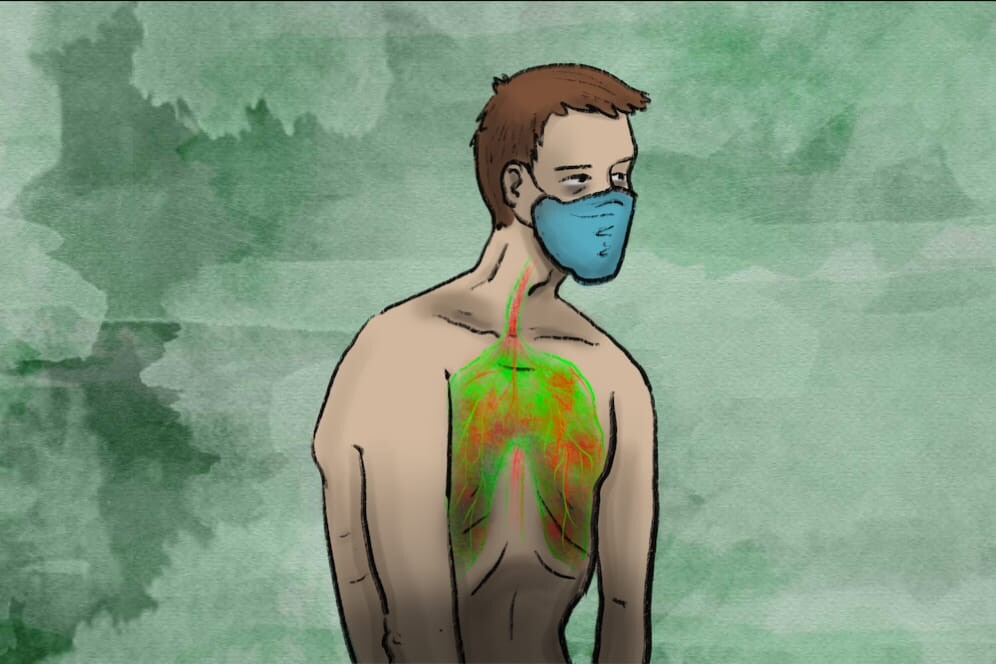
After two years of silent suffering, she decided to go to the doctor's back home. They made her have another X-ray. Five days later, she found out she had TB. Staff said: "Where have you been for the past two years?!" They couldn't fathom why this girl with a terrifying diagnosis wasn't getting treatment. It turns out her family wasn't negligent. She'd just slipped through the cracks.
All her plans for the future fell through. In 2008, she was told she would have to spend at least six months getting treatment. "Then I understand that everything is falling apart". Her parents, who she thought had a great marriage, told her they were getting divorced. She found out her grandmother and grandfather had died, but this had been hidden from her. When she went into the hospital, she learnt that her father was having a new son.
When she got her diagnosis, Ksenia thought: "Don't tell me this is it?! To die at twenty years old. That's so unfair!" One doctor found the right words for her: "We'll cure everything, don't be scared, you're young, you'll cope with this! I've got you a place in the hospital." Ksenia decided to fight for her life.
At that time, the future activist didn't get easily understandable information about the disease. All she knew was that TB was the illness of choice for great Russian writers. She didn't realise people didn't talk about their diagnoses, so she started publishing "notes of a consumptive" and "notes from hospital" on her blog. "I was one of the first to write from there"; she recalls. Her journalistic instinct told her this story had to be told.
For the first few weeks of treatment, if tuberculosis patients are still infectious, they're kept in hospital. Another reason is the drug regimen is punishing and has to be strictly observed. "I was told I would be taking four drugs, so I was expecting four pills. They gave me a handful of pills that you had to take in front of the nurse. I learnt to swallow all twelve at once", the former patient remembers.
One of the difficulties of treating TB is the sheer willpower necessary to get through, as well as putting your life on hold for months or even years. "Many can't cope with hospital incarceration", Ksenia observes.
Because of the delay in starting treatment, Ksenia's condition, although not the drug-resistant kind, was already serious. According to the US Center for Disease Control, "If the immune system can't stop TB bacteria from growing, the bacteria begin to multiply in the body and cause TB disease. The bacteria attack the body and destroy tissue. If this occurs in the lungs, the bacteria can actually create a hole in the lung." Ksenia had a 5 cm hole in her lung, much bigger than average, where the infection couldn't be cured. She was told she needed an operation.
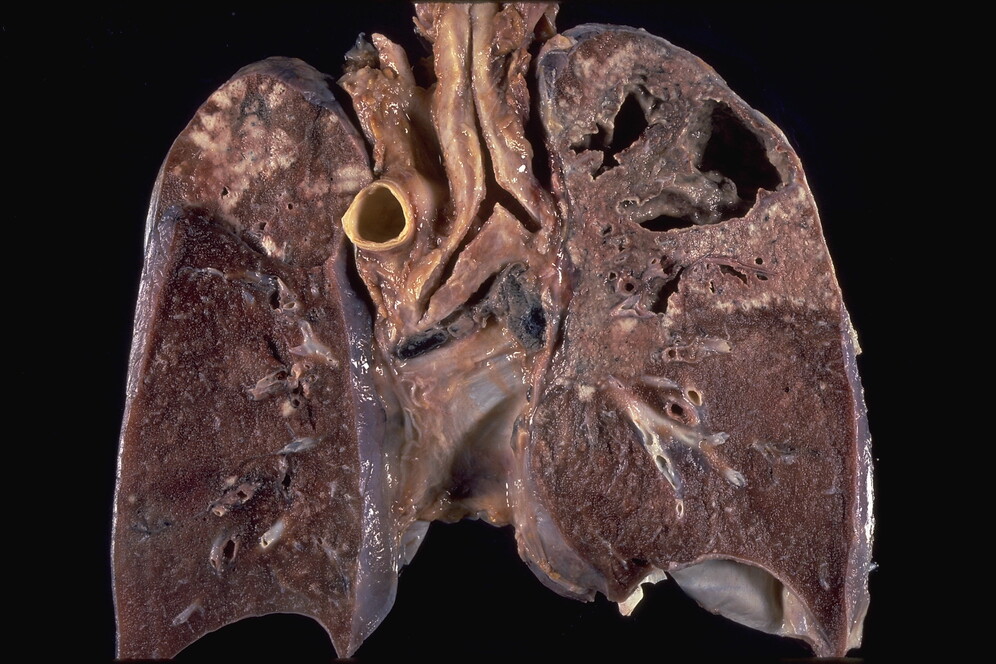
People were scared. Rumours were circulating that the procedures weren't necessary; they were just a way for the surgeons to line their pockets, that people only lived for five years after the op.
Ksenia checked things out on Wikipedia. She read her condition could be treated with drugs, so she asked for different pills instead of having the operation. "What do you want, to die?!", another doctor barked at her. "She was probably burnt out and used to work in the prison system. Apparently, scaring people with death was her only method for getting them to stay six months for treatment", said Ksenia. She got her father to back her up. "Well, if you insist...", the doctor answered. Ksenia was left alone for a couple of months.
Then another X-ray showed that the hole had grown to 7 cm. "Look at what you and your father have done!", the doctor wailed. "Has it got worse?" Ksenia asked her. "Much worse, you'll need two operations now". It turned out that Ksenia had misunderstood the English text of Wikipedia. At that point, she realised she had to stop being smart and trust the doctors.
She had a procedure known as collapse therapy in March 2009. To reach the lung, the surgeon had to take part of her top rib out and fold things so that the hole would then close by itself. "Other treatment methods weren't working". The nerve that went from her spinal cord to her hand was cut through.
"I woke up with a different body", she says. Tubes were hanging from her body and a lump near her clavicle, a haematoma that would recede, she was told. She was in excruciating pain, which lasted for weeks. She believes her ward neighbours, who told her it was as painful as childbirth, weren't lying.
Ksenia was treated in the surgical unit for a year. Because she lived nearby, she was allowed home at night between operations.
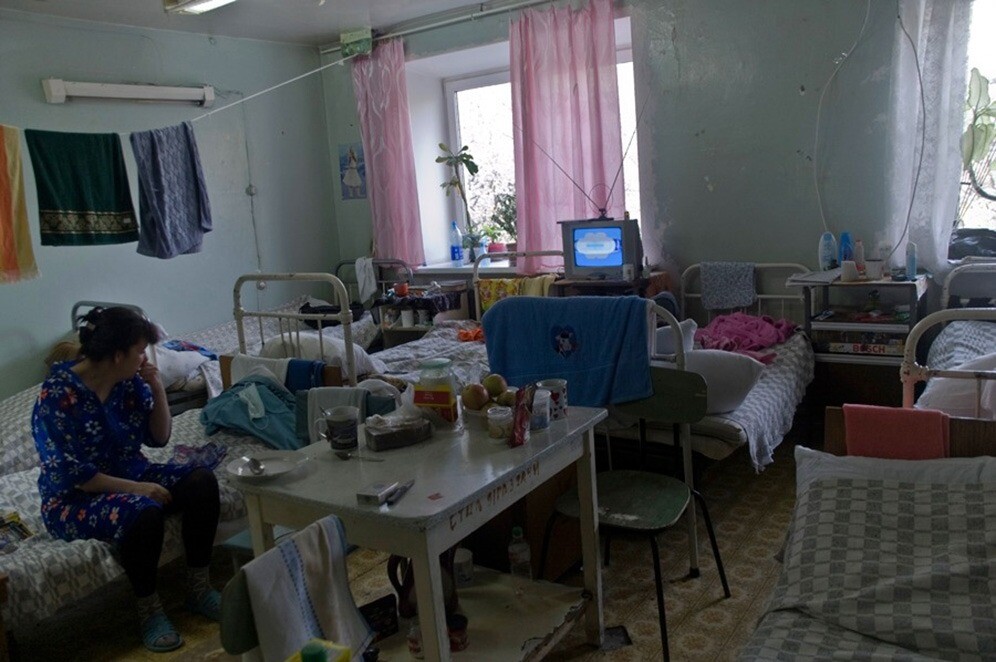
Most of her fellow patients stayed in the unit for months on end, however. Plane tickets to reach the remote corner of the region, which is larger than France, cost more than a month's salary. They didn't tell their families what was wrong with them either, and let them think they had gynaecological problems. "Who needs a sick wife?" they confided in Ksenia. Many were from the native peoples of the Far East, who had lower resistance to TB. "In certain settlements of my territory, tuberculosis isn't seen as out of the ordinary."
The stigma surrounding tuberculosis is very real in Russia. Perversely, the very successes of the Soviet Union in combating the disease laid the groundwork for that. "The Soviet Union had eradicated TB except in closed quarters with poor ventilation, such as army barracks and prisons". As a result, people believed that you had to have done something wrong if you had the disease. "A tuberculosis patient is dirty", Ksenia explains.
However, it was the stressful economic conditions of the 1990s that led to its resurgence. "People are losing their jobs; there's no stability, no one understands what will happen next", according to Ksenia. Migrants from newly independent republics would be working in outdoor markets in Siberia in temperatures of -40 to try and make ends meet. TB spread in overcrowded and underfunded prisons, but also outside. "Tuberculosis reveals the weaknesses of a society", points out Ksenia.
The healthcare system couldn't cope with the disease: "the doctors and beds were few, and they didn't have the right medication". People would buy antibiotics and self-medicate, which led to the growth of multi-resistant strains of bacteria in Russia, but doctors hadn't learnt to treat multi-resistant TB either.
Since Ksenia was treated in a decrepit cockroach-infested ward, things have changed for the better. "Russia has taken a huge step forward in modernising" medical treatment, building decent facilities, training staff, accessing drugs. "Compared to what things were like in the 90s, they've made incredible efforts..." Ksenia salutes the primary TB specialist doctors leading the country's fight against the disease, Irina Vasilieva and Professor Mariandyshev. "I have huge respect for them."
However, much remains to be done. There are still certain regions in Russia where the prevalence of the disease is above the epidemic threshold. In the Pacific territory of Primorsky Krai, medical staff have an average age of 52.
The general population still fear TB patients and those who treat them may be infectious and don't always welcome new facilities. Many patients on the edge of society are too afraid or too anarchic for the iron discipline that treatment requires. Patient activists bring a much-needed perspective to the fight against TB.
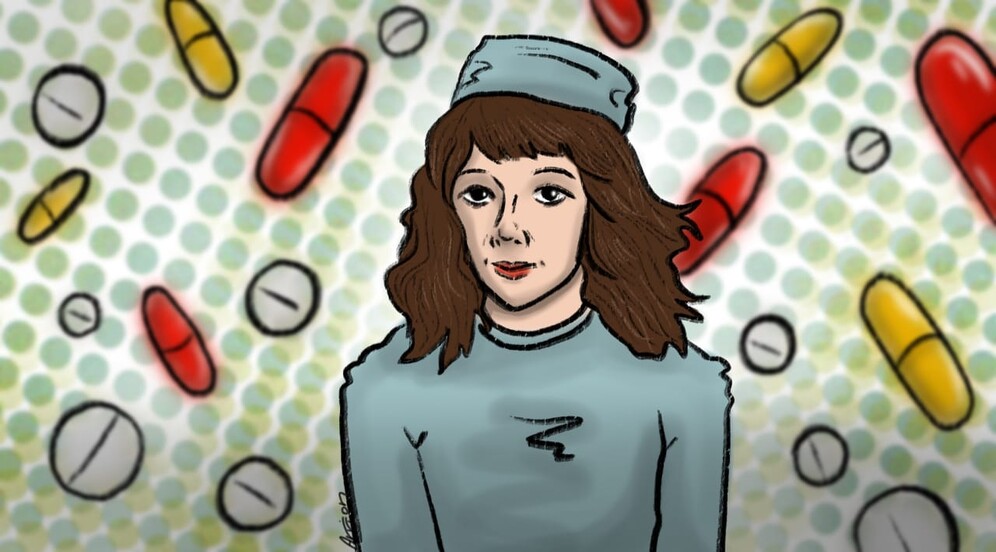
Once they are cured, most TB patients are eager to leave the past behind them. For Ksenia, helping other patients gave her a reason to live, despite her broken heart. Her body couldn't cope with the rigours of journalism, including carrying a 1 kg camera, so she gave that up. Instead, she focused on informing other patients, supporting them, forming a network of doctors via social networks.
She learnt more and more about the disease, including the psychological side. She didn't feel it was her fault she fell ill, but many patients are wracked with guilt for exposing their families to infection. She discovered that many young mothers get the disease because of the stress of giving birth. Part of her work is helping patients free themselves of the guilt and shame they feel.
She launched a social media initiative entitled, "this is what a TB patient looks like", where sufferers can post their pictures. The stigma is still so strong that there have been few takers. With an artist and former patient, she published a brochure with pretty drawings to answer common questions that patients have and encourage them to get treated rather than bury their heads in the sand.
After many years of feeling too shy, Ksenia Shchenina now calls herself an expert. She was even invited to the General Assembly of the UN, that devoted one day to the fight against TB in September 2018. There, heads of state re-committed themselves to the UN's Millennium Development Objectives is to eradicate TB worldwide by 2030.
Ksenia also rebuilt her personal life in Moscow. To regain use of her arms, she started to practise the drums and even opened a music school with a friend. She found new love, with an inspiring young woman this time. The stigma surrounding same-sex relationships is less than that surrounding TB, she discovered.
In recent months, Ksenia's unending activism work has caught up with her, and she's burnt out. The very intense teen writer from Russia's Pacific has not disappeared, however. The heart that got her into trouble and then got her out is now looking for ways to reach out to others without destroying itself.